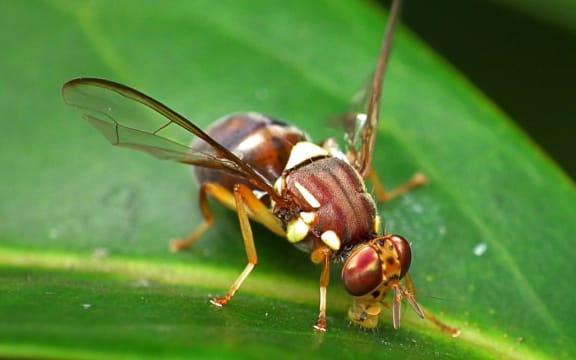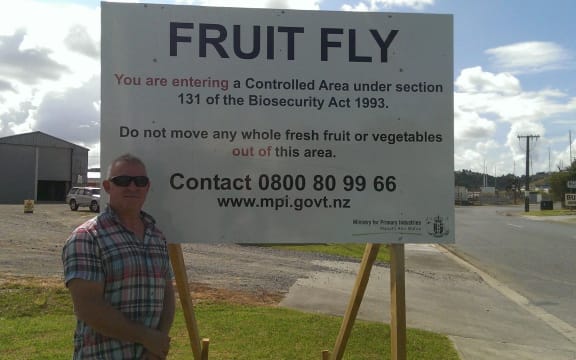The discovery of a second Queensland fruit fly in the same area of Whangarei in three months has the Green Party concerned a breeding population may have become established.
The Ministry for Primary Industries says another fruit fly was found in Parihaka on Tuesday but it doesn't believe the new fly is related to the January incursion.

The Queensland fruit fly (Bactrocera tryoni). Photo: James Niland
The Green Party biosecurity spokesperson, Steffan Browning, says either two fruit flies have come into the country on separate occasions and coincidentally gone to the same area, or there's a breeding population.
"If that's the case, we need to be really concerned.
"I'm wondering how they can say that they feel it's a new incursion, how can they be so confident when they have failed so spectacularly?"
Hundreds of positions have been dis-established at the Ministry for Primary Industries under the National-led Government and Steffan Browning says the result is poor biosecurity.
He hopes the country's trading partners don't start banning New Zealand fruit.
Chinese ban would hurt
Kiwifruit Vine Health chief executive Barry O'Neil - a former senior biosecurity official - says KVH has just released a report showing a fruit fly incursion in prime kiwifruit growing territory would cost the industry hundreds of millions of dollars.
But Mr O'Neil says the experts' belief that the new find is not related to the January discovery - indicating there is no breeding population - and that it was found in much the same location as the January specimen, eases that anxiety.
"We believe that it will have both a minimal impact on our operations for the 2014 harvest and we don't believe there is any cause for concern regarding steps or actions that our markets may take in light of this find."
Mr O'Neil says in 1996, during a fruit fly scare in Auckland, China banned fruit from the whole of New Zealand.
He says given the country's much greater dependence on China now, a similar scare would have a devastating impact.

Assure Quality officer Richard Calvert in Whangarei. Photo: RNZ / Lois Williams
Control zones
The ministry has set up control zones in Whangarei and is putting extra staff on the ground to see whether a breeding population has become established.
While no females have yet been detected the Ministry's Andrew Coleman says the ministry's systems aren't designed to catch them.
"The male fruit fly will go to the surveillance traps because that is what they are set up to do and internationally they're regarded to be very very effective by way of a trapping system.
"The female fruit fly is not an insect that is prone to going into traps and so that is why we dissect fruit and vegetables and when we do that we are looking for the presence of eggs and larvae."

